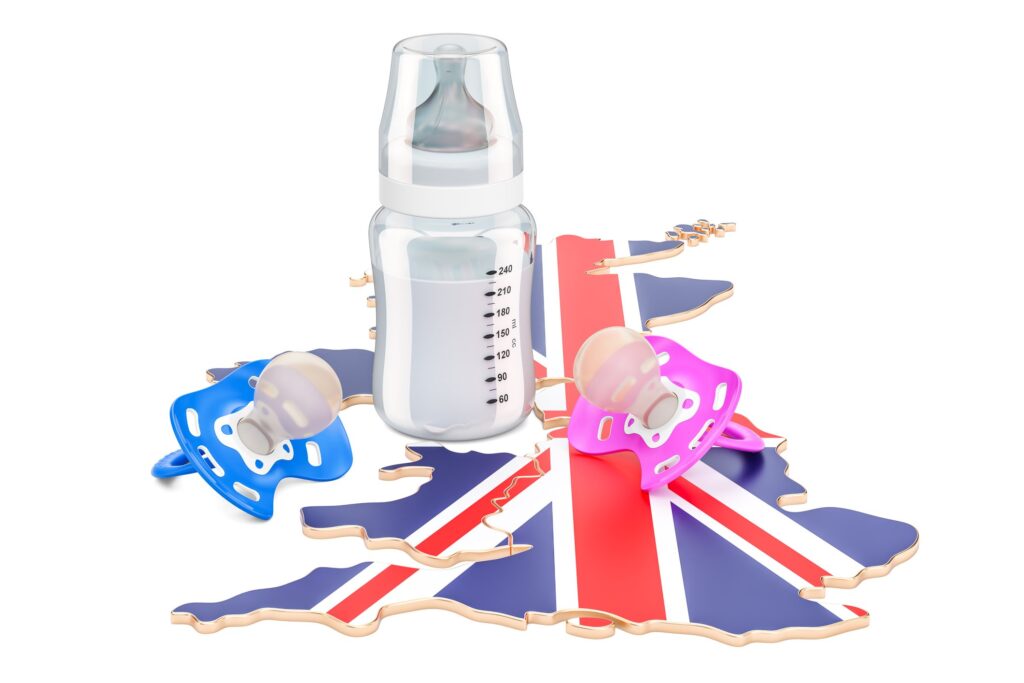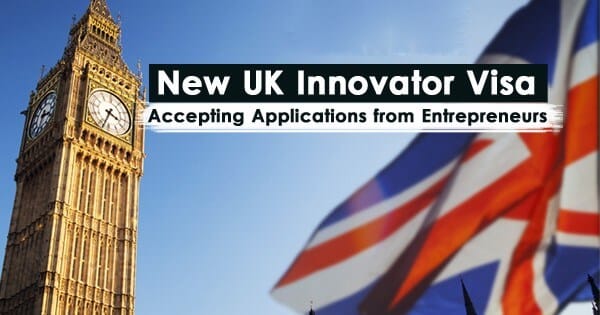Tier 2 Workers visas are formal work permits granted by employers under the authority of the UK Home Office. Also referred to as the sponsor, the employer must be licensed to offer Tier 2 General visas and do so in accordance with strict immigration rules and regulations. Completing a Tier 2 General visa initial application is typically mandatory for persons submitting out-of-country applications, or looking to switch to the Tier 2 General visa category from a different visa category.
Where the sponsor or employer is not licensed to issue a Tier 2 General visa, they are required to apply for and obtain a sponsor licence from the Home Office, before issuing any Tier 2 General visas for non-EEA employees.
If the applicant is currently in possession of a valid visa, Tier 2 General initial applications can be made from inside United Kingdom. This includes most applicants residing in the United Kingdom under most types of Tier 1, Tier 4 and Tier 2 visas. Otherwise, the application must be submitted from outside the UK. To ensure you understand your position, your rights and your obligations as clearly as possible, contact the immigration experts at Aristone Solicitors before submitting your application.
Conditions of a Tier 2 Workers Visa
The vast majority of successful Tier 2 General Visa applications grant the recipient three years of leave to remain in the United Kingdom. However, the employer or sponsor may choose to provide an official Certificate of Sponsorship valid for up to five years. In the case of a three-year Tier 2 General visa, the applicant will have the opportunity to apply for an extension of a further two years, under the condition that they work in the same position for the same employer throughout their initial period of leave.
In both instances, Tier 2 General visa holders who reside continuously in the United Kingdom for five years and satisfy all applicable requirements have the option of applying for indefinite leave to remain. After which, they are entitled to stay in the United Kingdom as settled workers, with no specific immigration or movement restrictions.
Should an employee or applicant leave the United Kingdom in order to submit an entry clearance application, they may be subject to a ‘cooling off’ period. Whether residing in the United Kingdom or outside the EEA at the time of your application, we strongly suggest seeking expert legal advice to clarify your entitlement and strengthen your case.
Resident Labour Market Test
The Resident Labour Market Test does not apply in instances where the applicant has an exemption on their visa, or in cases where the position appears within the “Shortage Occupation List”. Otherwise, the sponsor (employer) is obliged to provide evidence that the position has been marketed to applicants in the United Kingdom, prior to being advertised outside the EEA.
The employer must provide evidence that the job has been advertised via at least two channels for a minimum of 28 days, incorporating a clear job description, the location of the job and the salary. If the employer is unable to provide sufficient evidence to satisfy this requirement, they may be prohibited from issuing a Certificate of Sponsorship and thus be unable to hire the foreign worker.
Jobs that appear on the Shortage Occupation List are exempt from the resident labour market test, as are positions with an advertised annual salary of at least £155,300. In both such instances, there is no requirement for the employer to first advertise the position on the UK market.
In the case of an applicant who is exempt from the Resident Labour Market Test being offered the job, the employer is still obliged to provide justification as to why a migrant has been selected over a domestic candidate. As a result, it’s of the utmost importance to carefully consider your position and your obligations as an employer, before advertising vacant positions abroad and hiring non-EEA nationals.
For more information or to discuss your requirements in more detail, contact the immigration experts at Aristone Solicitors today.
Certificate of Sponsorship (COS)
(30 Points Awarded)
The Tier 2 General visa category is a points-based system, wherein candidates must score a minimum number of points to qualify. The most important contributor to a Tier 2 General application is the formal Certificate of Sponsorship issued by the employer. The sponsor may choose to apply for a Restricted Certificate of Sponsorship or an Unrestricted Certificate of Sponsorship, which depending on the specifics of the case can take up to six weeks for the process to be completed.
In the case of entry clearance applications – i.e. applications submitted from outside the United Kingdom – a panel meeting is held to determine whether the candidate is eligible for a Certificate of Sponsorship. Where applications are submitted from inside United Kingdom, the Home Office is responsible for determining eligibility. The latter process typically results in a significantly faster response.
A Certificate of Sponsorship can be issued under the strict condition that the sponsor has been formally permitted to employ non-EEA migrants by the Home Office. While it is not strictly the responsibility of the employee to ensure their employer is approved, pursuing employment with an unlicensed sponsor can waste time, effort and money. If you have any doubts as to the status of your prospective employer, we can help.
Our experienced Tier 2 immigration lawyers can provide the expert support and advice you need for a fast and fuss-free visa application.
Appropriate Salary and Allowances
(20 Points Awarded)
In order to qualify, you must be applying for a position that is officially classified by the UKBA as skilled and therefore appears on the shortage occupation list. In addition, the job must attach a minimum salary to meet UK Visas & Immigration Codes of Practice, which currently stands at £20,800 per annum for a skilled job. Exemptions apply in instances where the Home Office considers a prospective migrant to possess a shortage skill of value to the UK, or where the salary offered is a minimum of £155,300.
Minimum English Language Requirements
(10 Points Awarded)
All Tier 2 General visa applicants must have demonstrated a good grasp of the English language to be considered eligible by the Home Office. This means satisfying formal requirements – currently set at an English language standard of CEFR B1 level. Candidates have three options for meeting this minimum English language requirement as follows:
- By taking and passing a formal test approved by the UKVI (IELTS or Trinity College) at B1 level of the Council of Europe’s Common European Framework CEFR;
- By coming from a recognised English speaking country outside the EEA;
- By holding a degree-level qualification or higher that was taught in English at a recognised educational institution.
Various exemptions apply that there is no requirement to provide evidence of English language skills on the condition that:
- You currently have, or you were last granted a permission to stay in Tier 2 (General) under the rules in place before 6 April 2011; or
- You qualify under the transitional arrangements.
Applicants are also exempt from the requirement to submit evidence of their English language skills if at any time they have been permitted to stay in the United Kingdom:
- Under the Tier 1 (General) category, Tier 1 (Entrepreneur) category or as a Businessperson or under Tier 1 (Post Study Work) category; or
- As a Highly Skilled Migrant under the new legislation imposed as of 5 December 2006; or
- Under the Tier 1 (Graduate Entrepreneur) category, having previously submitted evidence of English language skills to level B1 of the Council of Europe’s Common European Framework for Language Learning or above; or
- Under the Minister of Religion category (not Tier 2 (Minister of Religion)) under the rules in place on or after 19 April 2007; or
- Under the Tier 2 (Minister of Religion) category, having previously submitted evidence of meeting the English language requirement; or
- Under the Tier 2 (General) category under the rules in place on or after 6 April 2011, having previously submitted evidence of English language skills equivalent to level B1 of the Council of Europe’s Common European Framework for Language Learning or above; or
- As a Tier 4 (General) student where the Confirmation of Acceptance for Studies used to support your application for that grant was assigned on or after 21 April 2011. If you are applying for Tier 2 (Minister of Religion), the Certificate of Acceptance of Studies must also have been assigned for a course of at least degree-level study.
Candidates subject to meeting formal English language requirements must score a minimum of 10 points, as specified in Appendix B of the Immigration Rules.
Meeting Minimum Maintenance Requirements
(10 Points Awarded)
‘Maintenance’ refers to the availability of funds the applicant has access to at the time of their application, which must be deemed sufficient to support their lifestyle without recourse to public funds. Current UK immigration legislation specifies the following:
- The applicant must have a minimum of £945 in personal savings in their bank account at the time of the application, held for at least 90 consecutive days;
- The sponsor/employer can take formal responsibility of maintenance for the candidate, which must be indicated on the Certificate of Sponsorship and is exclusive to A-rated (Premium), A-rated (SME+) or A-rated sponsors;
- Candidates who wish to include dependants in their applications are required to provide evidence of at least £630 additional personal savings for each dependant accordingly. Once again, the funds must have been present in their account for 90 consecutive days at the time of application. Evidence of personal savings of family members/dependants can also be used to satisfy maintenance requirements.
As all cases are different, we strongly suggest seeking independent legal support before completing your application. Particularly if you’re unsure as to where you stand regarding eligibility, the input of a trained legal professional could make all the difference.
Tier 2 Visa Lawyers in Luton
Aristone Solicitors is proud to offer a comprehensive range of individual and corporate immigration legal services in and around the Luton area. Our unrivalled experience and expertise enable us to perform at a higher level than comparable legal specialists.
We understand the complexities of Tier 2 Visa applications better than most and we’ll do whatever it takes to present your case as professionally and convincingly as possible. Contact a member of our specialist immigration team today to book your obligation-free consultation.



